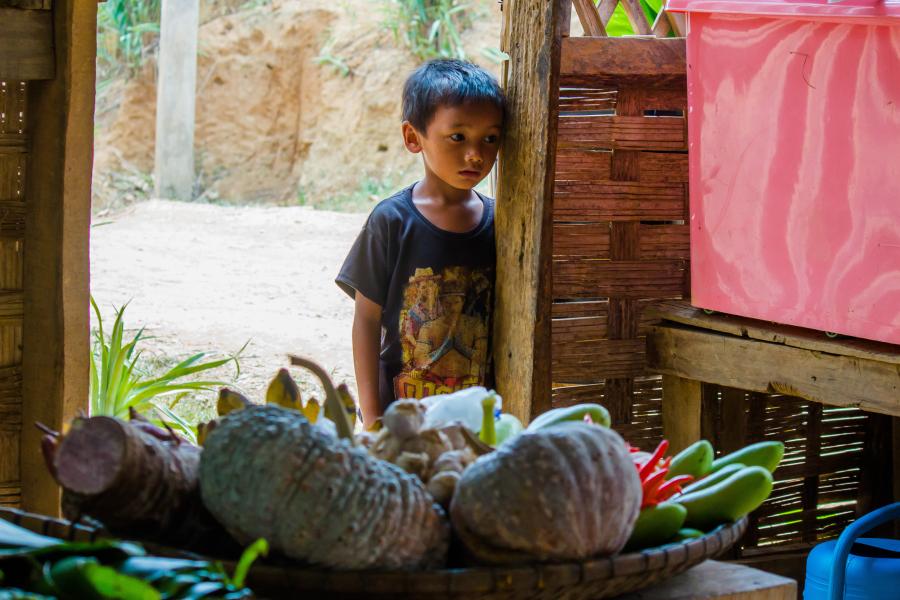Children’s immune systems benefit from healthy nutrition during COVID-19
12 ມິຖຸນາ 2020
Vientiane, 12 June 2020 – COVID-19 has impacted the way families eat, especially during the lockdown period. The development of a strong immune system in children is crucial in order to fend off health risks.

The World Food Programme (WFP) is warning against a silent hunger pandemic that may drive an additional 130 million people globally into severe hunger due to the fallout from COVID-19. Families who are already poor or on the brink of poverty, whose nutrition status is often concerning, are on the forefront of this danger. Children, because of their dependency on others for food and care, must be our focus in times of a global pandemic when everyone is impacted.
The Global Hunger Index 2019 marks Lao PDR in the serious category, as 87th out of 117 qualifying countries. Although the country has made significant progress in all its nutrition markers, much work remains.
The situation is also less than favourable regarding child nutrition. We know that the first 1,000 days of a child’s life are crucial for healthy development, the groundwork for which is laid in exclusive breastfeeding until six months of age. In Laos, however, according to the Lao Social Indicator Survey, more than half of children under six months are not exclusively breastfed, and more than two-thirds of children under two years of age are not meeting the minimum dietary standards in terms of meal frequency, quality and diversity.
Stunting levels remain a public health concern even without a lockdown, resulting in restriction of movement and difficulty in obtaining food. Today, one in three children between six months and five years is likely to be impaired in growth, with reduced learning capacities and cognitive abilities, leading to reduced life potential. In some provinces, the rate goes above the 50 percent mark. The national wasting level hovers around 9 percent, and signals insufficient food intake or severe illness.
The pandemic can exacerbate many of above problems. A recent COVID-19 impact survey on food security and agriculture, conducted by WFP and the Food and Agriculture Organization (FAO) indicates that around one-third of respondents felt a negative change regarding food consumption, with most of these respondents noting they were unable to consume all food groups due to price increases and the reduced availability of meat in the markets.
Where healthy options are few, a newer problem is the prevalence of unhealthy snack foods and beverages, high in sugar, fat, salt and with low nutrition density. The consumption of these packaged foods appeals to both children and adults for their convenience, low cost, long shelf life and taste. But consumption of these foods not only increases rates of overweight and obesity in both adults and children, but also impacts children’s consumption of nutritious and diverse foods.
With COVID-19 posing such additional challenges, protecting the immunity of children is more important than ever. A nutritious diet is key to the development of a good immune system, which includes breastfeeding up to two years of age, nutritious, regular and diverse meals and snacks with lots of fruit and vegetables, the avoidance of processed and packaged foods, and sufficient water intake.
For more information please contact:
Ildiko Hamos, WFP Partnerships and Communications Coordinator
Tel.: +856 021 330 300 ext. 2229; Mob.: +856 020 7717 7913
Kate Rose, UNICEF Lao PDR
Mob.: +856 020 5731 4321




